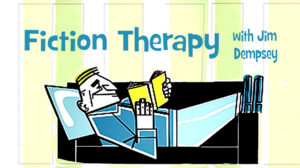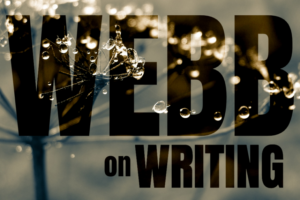Fiction therapy
A few months back, I bought, at the recommendation of The New York Times’s Wirecutter newsletter, a bottle of snail slime. But it wasn’t just snail slime. It was a Korean treat called CosRX Advanced Snail 96 Mucin Power Essence, that, according to the terrific test teams at Wirecutter, had made the list of Best Korean Skin Care Products.
I swore, years ago, that I would never do Botox or have “work” done. But there was a problem: I was getting older literally every day, and with each passing day, my forehead wrinkles were looking like furrowed rows in dry, fallow fields. I needed help. I needed magic.
Because I had never once seen a K-Pop star with a wrinkly forehead, I thought that perhaps this product would–Shazam!–smooth out my forehead situation. My friends would grab my arm, begging me to share my secret. My middle school students would confuse me with the adorable, sunshine-filled music teacher who could not be a day over 26. My husband would receive high fives from his middle age bretheren who wished their partners were as smooth-foreheaded as I.
When the CosRX Advanced Snail 96 Mucin Power Essence arrived in the mail, I tore open the box and removed the elegant packaging. The text on the frosted glass bottle impressed and delighted me: Being 96% Snail Secretion Filtrate (Mucin), this essence helps the skin to lose less moist while keeping the skin smooth and healthy.
Lose less moist? Sign me UP. With my very sensitive, very dry 53-year-old skin, I am all about holding onto as much moist as possible.
My college-age children however, as well as my husband, were uncomfortable that I would put any kind of snail mucin–Advanced or merely Average–on my face. But I knew the power of mollusk mucin, its ability to create a barrier between skin and environmental danger. I knew it most certainly blocked moist-loss.
I knew this because in 6th grade, my teacher, Mrs. Gillfillan, took our class to the foothills of Somewhere, California, where my classmates and I slept in cabins, where we hiked forested trails softened by layers of lichen and pine needles, and where my entire class and I stood in line to become members of the Sleepy Hollow Elementary Lick-a-Banana-Slug Club.
It was 1982, i.e. teachers allowed 28 students to line up and lick a single banana slug. Life was germy.
By the time it was my turn, 27 of my classmates’ tongues had already grazed the slug’s overripe banana’d personage, and the slug was relying on its best (and only) defense: its V-8 turbo-charged emergency slime boosters. In other words, instead of me leaving my saliva on its back, it left its (definitely Advanced) mucin on my tongue. The licker had become the lickee.
For at least 36 hours post lick, my tongue experienced an inescapable slick of slime as well as a sharp tingling sensation. I felt something that I now […]
Read MoreIt’s been a while since I’ve written for the wonderful WU community. It’s good to be back. I’ve been busy, and I thought it might be useful to let you know what I’ve been up to. I think it’s a situation many of you will recognize.
I moved to a new city recently, to a whole new country, to Portugal. One thing I knew I would miss was my old writing group, and I knew that finding another group here, where I could write in English, could be tricky.
I hadn’t even moved to Lisbon, with all the multicultural opportunities a capital city can offer; I had moved close to a smaller town, called Caldas da Rainha, just one hour from Lisbon and the international airport, and known as the city of creativity. It has an excellent, internationally recognized art and design school too, so I wasn’t exactly isolated.
But there wasn’t a writers group.
There was, however, a regular open-mic event for writers, called Wordplay. It’s an incredible, inspiring, foot-stomping, table-banging occasion with writers reading original work in whatever language they write in: Portuguese, English, Spanish, Turkish, whatever. It had it all. And I had met my people.
I spoke with the organizer, Jazz Meyer, a fellow editor, writer and filmmaker. We talked about writing, and she mentioned she met up regularly with another writer ,and they would both be keen to expand their meetings to include others.
A Sense of Community
And that was it. We started our writers group in November 2023, which now has a core of around ten people, and we often have fifteen or sixteen people each time. And it gives everything that all good writers groups give.
It provides support. With writing being such a solo activity, it’s important to check in with other people at times, especially those who are in a similar situation.
And because most people write on their own, it’s also easy to skip a day. Or a week. Or even a month, which can continue for a longer time, and can run into being a very long time. Meeting once a month forces you to write something that just might get you back on track.
A writing group helps you see your progress too. You can revise based on the feedback you receive. Through writing exercises, you can pick up and develop new techniques, new perspectives and experiment with different ways of writing. Over the months and years, you can see how your writing has improved and, equally as rewarding, see how the writing of others in your group has progressed.
Every writing group is different, but if you’re thinking of setting one up, here’s how we do it.
Structure in Creativity
Our meetings start, of course, with an introduction, and we get straight in to writing. We start with a simple prompt like: write 50 words that tells us three things about you, but one is a lie. The others have to guess the lie. This is great in the early days for getting to know each other. An exercise at the start also helps to shift your brain from its usual problem solving, list making processes into something more creative.
We then get to pieces we’ve written based […]
Read MoreHave I said all I need to about craft and the writing life? This is what I asked myself as I searched my mind and heart for a compelling topic to write about. I have literally thought about this post for weeks and kept coming up blank until I realized that was the very thing – this coming up blank – that has plagued my writing life for the past six months. I’d sit at my desk and stare at my WIP, move a few commas around, reread what I’d written, maybe manage to eke out a few sentences, and then walk away. Over and over again, week after week, month after month. It’s been a frustrating year in that regard, and I started doubting the premise of my WIP. Would anyone want to read this book anyway? And then I started doubting myself. Maybe I couldn’t pull off what I was trying to do on the page. Maybe I’d forgotten how to write entirely.
So I’d been paralyzed, so much so, that I’d been stranded at the same 30k word count for months.
I’ve Got Nothin’
Read More
In 2016, when the film Manchester by the Sea was released, I went to see it with a friend. The movie, directed by Kenneth Lonergan, tells the story of a reclusive, down-and-out janitor, played by Casey Affleck, who has lost his children in a house fire caused by his own negligence. Depressed and antisocial, he’s forced back into the land of the living after the sudden death of his brother, when he becomes the legal guardian of his teenage nephew.
Although the movie was sad, it spoke volumes about our ability as individuals to overcome almost unbearable circumstances, grounding and humanizing the sort of horrendous catastrophe that is all too often politicized or used to boost ratings by the mainstream media.
As my friend and I were walking out to the car after the movie, my friend said, “If I’d known how depressing that was going to be, I would have stayed home.”
I didn’t mention it at the time, but I loved Manchester by the Sea. I wasn’t the only one. The film was nominated for six Academy Awards and won two: Best Actor and Best Screen Play.
In Poetics, Aristotle’s famous essay on Greek drama, he wrote that the purpose of tragedy is to “arouse sensations of pity and fear, and to purge [the audience] of these emotions so that they leave the theater feeling cleansed and uplifted, with a heightened understanding of the ways of gods and men.”
Anyone who enjoys listening to the blues knows how this works. It’s also the reason that some of the most revered and beloved works of literature in the English language are tragedies.
Because they offer insight into the human condition, often exhibit circumstances that foster societal plight, and promote critical thinking, tragedies were once standard curriculum in high school and college English classes.
In the late 1980s, when I was in high school, we read Shakespeare’s Othello, Hamlet, Macbeth, and Julius Caesar.
As freshmen, we cringed and wrung our hands after learning the fate of Thomas Hardy’s Tess, the protagonist of his masterwork, Tess of the d’Urbervilles. Poor Tess never had much of a chance.
My sophomore year, we spent a week discussing the suicide of Willy Loman, the sad-sack anti-hero of Arthur Miller’s Death of a Salesman.
I’ll never be able to forget Melville’s luckless Billy Bud, hanged by his neck from the yardarm for a crime he didn’t commit, or the murder of Jay Gatsby, F. Scott Fitzgerald’s lovesick millionaire, shot to death in his own swimming pool.
These works of literature and others like them can be tough to get through. But, in my opinion at least, the cultural, ethical, and spiritual enlightenment tragedies offer outweighs any emotional burden they might impart.
And yet, sometime over the last thirty or so years, tragedies fell out of favor. Novels like Of Mice and Men and The Scarlet Letter make up a large percentage of the books that have been banned in certain parts of the country. Perhaps this is a result of the general backlash against anything even remotely intellectual that’s run rampant in the U.S. for the past few decades, […]
Read MoreMy book group just had our Christmas dinner. It was such a good night we hardly discussed this month’s book (Tomorrow, and Tomorrow, and Tomorrow by Gabrielle Zevin). While we were all chatting, a man put his hand on my shoulder, leaned into me and said, ‘I don’t know what you’ve done or how you did it, but,’ he looked up at my book club colleagues, ‘Well done, buddy.’ And he finished with a hearty pat on my back.
Why did he say this?
He seemed to be impressed that I was the only man among 16 women.
I was too slow to react, trying to work out how I knew this guy. But I didn’t. He was a stranger.
One of our group was much quicker. She called out, ‘Read more books, mate!’
I joined the group about 18 months ago, when I first moved to this city. It seemed like a good way to meet people through a shared interest in books. I didn’t know they’d be all women, although I could’ve guessed. In any book club I’ve been , wherever, in the world, I’m usually the only guy.
But I wasn’t there to meet women. I was there to meet people. And maybe even make friends.
Developing trust
It can be easy to meet people (for some of us) when you move to a new place. And some of those people might even be friendly people. But it’s more difficult to make friends.
You might spend time with those first people you meet – go for dinner, have a coffee or visit some of the local sights – but to become friends with them, really friends, takes something extra.
It’s difficult to pin down what makes truly great friends. You’re likely to have shared interests, values and experiences, for example.
A love of books is a good place to start, I thought. But if you only meet once a month and not everyone has much time to hang around after the discussion, it can take a while to really get to know the people and become anything like good buddies.
Then I met someone who wanted to start a group to discuss Stoic philosophy. I knew more or less what stoicism was about after a friend – a true friend – had introduced me to Marcus Aurelius some years ago, so I joined this group too.
This also involves books, and we have readings each time on a particular topic. In our last meeting, we happened to discuss friendship. The Stoic philosopher Seneca said this about it:
Ponder for a long time whether you shall admit a given person to your friendship; but when you have decided to admit him, welcome him with all your heart and soul. Speak as boldly with him as with yourself…’
Clearly Seneca should join a book club to have the chance to make some female friends, and he seems pretty intense too. I don’t think every friend has to be on the heart and soul level. I have a friend with whom I could leave a bag of money in small notes and know he would never touch a single one, but I can’t believe everything he tells me. But then I love fiction. I have another very good friend who will arrange to meet […]
Read MoreLike almost every other aspect of life, artificial intelligence is also having an impact on the publishing world. People are using AI to generate story outlines and even whole novels. Some people sell these novels without stating how much help they got from AI, cheekily passing it off as all their own work. Others, even more cheekily (to put it mildly), publish bot-generated books under established authors’ names, much to the surprise of these authors who, of course, see none of the profits.
Amazon is struggling to keep these fraudulent texts out of its platform. Teen and young adult romance genres have been particularly inundated with low quality, AI-produced texts. Amazon’s response so far is to limit the number of books a self-publisher can upload in a certain period of time and require them to disclose if the work is by a bot.
And there can be other less obvious detrimental effects as interns and editorial assistants can be tempted to use AI to summarize book proposals coming into publishers and literary agents, which means they could lose out in the nuance of a text and fail to gain essential editorial skills that will benefit the industry in the future.
On the other hand, many publishers believe that machine learning can benefit them by streamlining the production process, bringing books to the market earlier and making it easier for readers to find what they want.
What are the odds
Despite these advantages, most articles on AI predict doom and gloom and the death of humanity. People have predicted such apocalyptic scenarios before, and there have been many stories throughout history that deal with this kind of threat. Maybe we can learn from them and find a way to deal with any machine that decides to take over the world.
As Dave King pointed out on WU recently, these fancy programs – and some of them are very fancy – are not in fact intelligent but rather operate more as probability machines. The term artificial intelligence is more of a marketing gimmick. It’s catchier and sells better than ‘probability algorithm’, regardless of how cool that algorithm is.
Like Dave, I like to look to the past for my thesis because technology being sold as something smarter than it truly is is not a new thing. Dave talked about the centrifugal governor breakthrough for steam engines in the eighteenth century. I want to go further back than that – to ancient Greece.
My inspiration came from a podcast series by an artist called Blindboy. He describes a situation similar to the one much of the media would like us to believe is occurring now or in the very near future, where artificial intelligence becomes so smart it decides to wipe out its creators. Blindboy points out that this is a not a new scenario but has in fact occurred in many ancient cultures – if we are to be their stories. The ancient Greek version goes something like this (apologies for my very brief summary):
Ancient solutions
Zeus – a god – and Prometheus – a Titan, so not quite a god – developed humankind as a kind of pastime. They wanted to play around with these little creations, much like many people […]
Read MoreOne of the many things I genuinely enjoy about Writer Unboxed is the comments section after each article. The comments can often develop into a discussion that elaborates on the original topic and they can bring a range of perspectives on the subject.
Sophie Masson’s excellent article on working with an editor really stood out for me in the last month. In the comments, Barry Knister had a great questions about ‘knowing how to judge the judgments of an editor.’ Check out that discussion if you haven’t already because it has some great insight for anyone thinking of hiring an editor.
For me though, it got me asking another question. Where does an editor’s responsibility lie? Is it with the author –or to the readers, who will ultimately consume the product?
There is, of course, a strong argument that we editors are primarily responsible to the authors. After all, they or their publishers/agents are the ones paying for the service. But writing, and therefore editing, is not, and should not be, only about money. Editors also have an ethical responsibility.
Sure, much of that ethical responsibility is tied up in the contract with the author/publsher as the codes of conduct we sign up to when we become members of a professional editing society clearly state. The editor has to provide a quality service, often before a certain deadline.
The job of editing
My question, however, is about that service. To understand were our responsibility lies, we have to understand what it is we do.
We work on text. We revise or suggest revisions. These might be small-scale changes – commas and colons – or large-scale changes where we suggest major manuscript rewrites.
But what’s our ultimate purpose as we do this? Is it for the author to sell more books? That could be part of it, although the author will only sell more books if readers are happy with the edited text.
The text is, after all, intended to be read. And, for me, the editor’s job is about making sure the text is easier (for wont of a better word) to read. By that, I mean there should be no room (or at least as little room as possible) for the reader to misunderstand, misinterpret or be misled by the text.
In other words, the text should be as clear as possible for the reader to read. That’s one way of looking at it, at least.
Does that mean we are ultimately responsible to the readers, to make their experience the best it possibly can be?
Perhaps. But while we make and suggest all those revisions, we also have to respect the author’s intention – even when that intention is to confuse the reader (take a look at the example I used in an earlier article from Samuel Beckett’s Molloy).
Understanding readers
So, editors have to be sensitive to the author’s intentions, but surely we also have to be sensitive to the readers’ possible interpretations. That means understanding how readers will see the book while also understanding how the author wants the readers to see the book.
But what if there are no readers, beyond the author’s mother, for example? With experience, an editor can tell if that’s likely to be the case, and it’s better to not take that job and […]
Read MoreWe can all write, right? Most of us learned to write at school. Many of us then went on to write as part of our work: reports, plans, assessments, etc. And, in these days of social media, most of us write messages, posts and emails. Some of us even still write good old fashioned letters.
So, while it might be fair to say that most people write in some capacity, it’s not the case that most people are writers.
What’s the difference?
I think most people would feel misled if you said you were a writer because you spend most of your working day compiling reports. You probably have a more accurate job title.
Even those who write stories every day and are regularly published are more accurately called journalists than writers, although some journalists are also writers.
Merriam-Webster defines a writer as simply “one that writes.” The Cambridge Dictionary goes a little further and says a writer is “a person who writes books or articles to be published.”
Anybody can pretty much publish anything these days, and there are people who publish books that have so many basic errors and where the story is so incoherent that most of us would not consider that person to be a writer. That, as Truman Capote scathingly said of Jack Kerouac’s On the Road, is typing, not writing.
Meanwhile, there are many people who have completed several works but, for many reasons, have not had them published, and yet we would consider them to be writers.
Which means we expect a certain quality to writing, whether published or not.
Pour your heart out
And yet, because so many of us can write (but let’s not forget the more than 700 million globally who cannot), many people think it’s easy to write – that it’s easy to be a writer. All you have to do is sit down and tap away at a keyboard and, after a while, you’ll have a book.
When I tell people – some people – that I coach writers, they think it’s a waste of time, either because most of us learned to write in school and so that should be enough, or because writing is something that takes talent that you either have or you don’t.
There’s no need for creative writing courses, they say, or to go on retreats or study for years to get an MFA or whatever other piece of paper; all you have to do, say these cynics, is write. Follow those lessons most of us learned at school and you’ll soon have a book – if that’s what you really want.
Hemingway agreed. Almost. “There is nothing to writing,” he (arguably) said. “All you do is sit down at a typewriter and bleed.”
Most of us here know about that bleeding. We know it takes more than an infinite number of monkeys with typewriters to produce the works of Shakespeare. And I don’t believe an infinite amount of artificial intelligence units will cut it either – at least, not until they learn to bleed too.
And that is true of any art. But, for most other artistic endeavors, it’s expected that you spend years learning from the experts. It takes time to know how to capture a scene in oil on canvas.
Pretty much all of us […]
Read MoreI grew up in a small town that contained the following highlights: Blockbuster Video, Loard’s Ice Cream, Nation’s Hamburgers, and Safeway. A library, a drug store, as well as a bookstore and community center. A beautiful old movie theater with a domed, celestial ceiling and lumpy velvet seats that smelled weird. That was about it. As teenagers, unless we hopped in the car and headed west, we had to work hard to find local entertainment.
Therefore, on weekends, I often found myself hanging out with my best pals in the Safeway parking lot. Literally in the parking lot. To this day, I don’t know why this seemed like fun, this loitering. We must have been waiting for something to happen. Or maybe we weren’t waiting for something to happen. Maybe we were waiting for anything to happen.
I don’t remember being bored. I remember hanging out with my best pals–friends I still hold dear nearly forty years later. In the Safeway parking lot, free from eavesdropping parents and irritating siblings, we did the most low-tech of things: talked, laughed, and gossiped.
How dull our lives must have looked to others. Perhaps we looked suspicious too. After all, we were loitering. And as many a sign will remind us, loiterers are rarely a welcome sight. But the simplicity of that activity, the absence of technology, movies, music, and alcohol, allowed room for us to connect in meaningful ways. Even if it looked really boring.
This summer, during my break from teaching, my life must have looked just as boring. The day after school got out, I tackled the still-major revisions suggested by my editor. For the next two months, I revised and revised and revised, and when I wasn’t revising, I was thinking about the revisions, puzzling over how to pull off the changes my editor had suggested. And when I wasn’t revising or puzzling, I was quietly and privately panicking that I wasn’t going to be able to pull off the revisions my editor was expecting. That’s it. That was my summer. To a casual observer it would have been as exciting as watching four teenagers hang out in the Safeway parking lot.
Okay, sure, I did do a few other things this summer. I ate significant amounts of watermelon. I occasionally showered. Less occasionally, I did ten pushups. I stood in my back yard, watching my May/June mason bees and, later, my July/August leafcutter bees, laying eggs and building little capsules for their babies in their bee chalet. I lured crows into our backyard with stale crackers. I considered sorting and refolding the old sheets and towels in the linen closet. I ordered mattress protectors, surge protectors and daughter protectors, plus a ramen-in-the-microwave cooker for my sweetie who started college in August (two time zones away). I enjoyed walks to the neighborhood brewery for a cider with the husband and the dog. I caught up with dear, neglected friends. I went head-to-head with my dad on the daily Wordle.
But mostly I loitered in the Safeway parking lot of my story. Not actively loading items into my shopping cart. Not […]
Read MoreThe last episode of season 2 of The Bear was a study in tension–for a show that is renowned for producing tension in the viewers, the last episode is a masterclass. What the writers did to the main character was cruel and amazing. No spoilers, but there’s a mishap due to the MC’s own inaction. They could have made it a little speed bump, let him twist for a few minutes and then fix it. But there was no fix. They made him suffer for a long time, and he acted out of all his wounds and fears and put himself in a worse place than when the episode started.
As a writer, I was jealous.
I want to do that! However, I keep not doing that. I have to constantly work on making characters live with the consequences of their and others’ words and actions.
Giving up too easily (without good reason)
I let my characters give up too easily. I put them in tension- and conflict-filled interactions, but I “pull the rug from beneath the stakes” — a direct quote from a writing coach on my current work in progress.
The scene that inspired this comment had 12-year-old Sam arguing with his 13-year-old cousin Jake. Jake had grabbed something important to Sam and was being reckless with it. Sam managed to get it back, but with barely more than a, “Come on. Can’t you take a joke” from Jake, Sam agrees to share the item and he and Jake work well together. Sam didn’t hold Jake accountable for his words and actions, which put the item at risk and denied how important it was to Sam. I’d done a good job of setting up serious conflict, but didn’t follow through. I let Sam give up, and I didn’t give him a good reason to do so.
Promising one thing and delivering another (with no hints)
It reminded me of a moment in The Help that frustrated me. After African American domestic worker Minny Jackson was fired for using a white household’s bathroom, she is hired by outcast white housewife Celia Foote. Celia keeps Minny secret from her husband Johnny, so she can pass off Minny’s cooking and housekeeping as her own. Minny and Celia wind up treating each other with respect and compassion, and Minny saves Celia’s life. It is lovely, but it’s also a source of tension because Minny is terrified, certain Johnny will shoot her if he finds out.
When he does, instead of doing anything violent, or being angry or even annoyed, he’s grateful to Minny. Kind, even. Celia and Johnny invite Minny to a special meal Celia was up all night making. Minny eats it at their dining room table while they look on adoringly. Johnny tells her she has a job for life.
If Minny had been my friend, I would’ve been so happy for her. What an amazing twist.
But as a reader, I was mad. Not that I wanted bad things to happen to Minny, but I was set up to expect them, and wasn’t given enough hints that Johnny had a different character than Minny thought. To have their interaction become over-the-top rose-colored made all that buildup feel utterly pointless. Instead of being delighted that Minny was so wrong about […]
Read More
My second novel, which was released last March, is a coming-of-age story. The book’s protagonist is a sixteen-year-old boy. A few months before the publication date, I had a conversation with my publisher about whether the book should be marketed as a young adult novel or as adult literary fiction.
“It really could be either,” my publisher said. “I think there’s something in it for everyone.”
After weighing the pros and cons of each, we decided to go with adult literary fiction, partly because the novel contains mature content that some parents might find unsuitable for teenagers, and also because we felt that the book would have an opportunity to reach a wider audience as an adult novel.
I was happy with this decision until the book came out and one of its early readers, who also happened to be my father, sent me an email. “It’s a good book, but I don’t think it’s for the over-seventy crowd,” he wrote. “It’s hard to identify with a teenager at my age.” (For the record, he also gave the book a four on Goodreads 😐.)
I was considering asking my publisher if we could revise the book’s metadata when positive reviews started to come in, all of them from adult readers.
“I’m not a teenager,” one woman told me, “but I could really relate to the book’s main character. I’ve had some similar struggles in my life recently. I was rooting for him to succeed the whole time.”
By definition, coming-of-age stories portray a time in a character’s life when they’re undergoing a metamorphosis—in the process of becoming a better, more evolved version of themselves. For most of us, this development takes place when we’re in our late teens or early twenties. But life, especially over the past few years, doesn’t always stick to the rules. Big changes can take place in anyone’s life at any time whether we want them to or not.
If you asked someone to give you a list of their favorite books, it’s likely that at least one coming-of-age story would make the cut. Classic novels like A Catcher in the Rye, The Chocolate War, and The Outsiders occupy an eternal place in people’s hearts because we all know what it’s like when the phonies won’t get off our backs and the rich kids cheat to win.
One of my favorite novels is Peace Like a River by Leif Enger. Set in 1950s Minnesota, it’s the coming-of-age story of eleven-year-old Reuben Lands. The story is full of adventure, tragedy, poverty, hope, love, and miracles that feel true-to-life. I’ve read it a dozen times. Every time I read it, I’m reminded that it’s not just our circumstances that define our characters but the ways in which we choose to handle them. I’m also reminded that, if we’re open to it, it’s possible to grow and change as a person no matter our age.
Although it’s been widely read in high school English classes since it was published, Peace Like A River was intended for an adult audience.
Coming-of-age stories are universal. They occupy their own special niche in the world of storytelling. By showing us […]
Read More

















